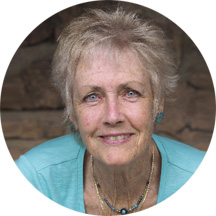In “The Meaning of Your Life Part I” (found in “Recent Articles”), I recounted part of my experience of Dachau concentration camp as a young girl. Walking those grounds has influenced my values ever since. I came to believe, as camp survivor Viktor Frankl wrote, “When we are no longer able to change a situation, we are challenged to change ourselves.”
Every day, as we continue to grow older, we have to admit that time passing is an unchangeable situation. It can impose physical and mental limitations on us. It puts us closer to our end time on earth, and questions arise about facing that. It can make us feel an urgency to live our meaning now or seek it harder.
I think it’s particularly important to look deeper into the literal things we value when we seek meaning in order to be as flexible as possible. If we hold fast to a particular love or passion which brings us joy and makes life worth living—and we lose the ability to do that—our heartache may be insurmountable. We have to expand the choices.
For example, if we believe that dancing gives our life meaning and we end up in a wheelchair, what is left? But if we seek the essence of dancing, such as movement and the expression of our soul, we can look for other activities that capture that in spirit. Even tapping a toe.
We determine what ingredients give the things we love meaning. What is the essential nature of your beloved interests—to you? It can be similar to what others feel about this same pursuit or very original to you. To someone else, the essence of dancing may be feeling the rhythm of life or symbolize reaching out to others. To you, it may be connecting with Life itself in a spiritual or religious way.
Our meaning is not limited to what we go towards, but it can also be in our past. Frankl quotes a poet who says, “What you have experienced, no power on earth can take from you.” Our years are full of possibilities which we can dig through to feel what resonates in our hearts today.
When Frankl found how important the ability to love was in his survival in the stripped-bare existence in camp, he also learned that “Love goes very far beyond the physical person of the beloved. It finds its deepest meaning in its spiritual being, his inner self. Whether or not he is actually present, whether or not he is still alive at all, ceases somehow to be of importance.” Our task is to love deeply—people, things, Nature– anything that matters.
Finding meaning in our lives is seldom a single action. Sometimes we accept the challenges of living and find what gets us through them. And then another wave overtakes us. Frankl writes about the prisoners’ joy at liberation. And then for some, they traveled to the home whose memory had kept them alive for years of hell only to find that “the person who should open the door was not there and would never be there again.” Perseverance, as in “one foot in front of the other,” makes it possible to keep searching for what matters most.
I hope these two columns have inspired you to read Man’s Search for Meaning by Viktor Frankl. His belief, born of his torture and agony, continues to inspire me. He says, “Everything can be taken from a man but one thing: the last of the human freedoms—to choose one’s attitude in any given set of circumstances, to choose one’s own way.”

